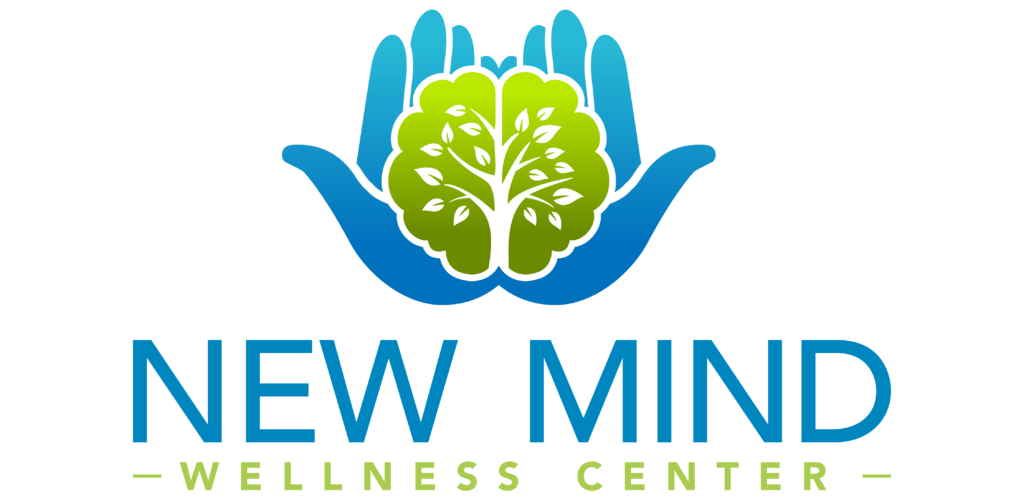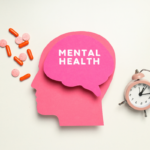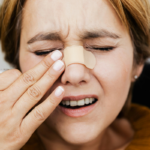
Types of Depression: Signs and Symptoms
Gaining insight into the different types of depression is essential for seeking the right treatment and support. Depression is a multifaceted mental health condition impacting millions globally, manifesting in various forms with distinct signs and symptoms. This article delves into the most prevalent types of depression, highlighting their signs and symptoms to offer a thorough guide for those aiming to understand this widespread issue. If you or a loved one is struggling with depression, call New Mind Wellness today to take the first step toward a healthier, happier life. Our mental health treatment program in Philadelphia was carefully designed to help individuals struggling with depressive disorders of all types and severities. Regardless of your symptoms, we can help.
To learn more about mental health recovery options in Philadelphia, call us today or verify your insurance online. We look forward to helping you get started on your personal recovery journey.
Major Depressive Disorder (MDD)
Major Depressive Disorder, also known as clinical depression, is one of the most severe types of depression. Individuals with MDD experience persistent feelings of sadness, hopelessness, and a lack of interest in daily activities.
Key symptoms include:
- Persistent sadness or empty mood
- Loss of interest in previously enjoyed activities
- Significant weight loss or gain
- Insomnia or excessive sleeping
- Fatigue or loss of energy
- Feelings of worthlessness or excessive guilt
- Difficulty concentrating or making decisions
- Recurrent thoughts of death or suicide
Persistent Depressive Disorder (PDD)
Persistent Depressive Disorder, formerly known as dysthymia, is a chronic form of depression lasting for at least two years. While the symptoms may not be as intense as those of MDD, they can be long-lasting and significantly impair one’s quality of life.
Symptoms include:
- Depressed mood most of the day, more days than not
- Poor appetite or overeating
- Insomnia or hypersomnia
- Low energy or fatigue
- Low self-esteem
- Poor concentration or difficulty making decisions
- Feelings of hopelessness
Seasonal Affective Disorder (SAD)
Seasonal Affective Disorder is one of the types of depression that occurs at specific times of the year, usually in the winter when there is less natural sunlight. Symptoms often improve with the arrival of spring.
Signs and symptoms of SAD include:
- Sadness or depressed mood
- Loss of interest in activities
- Changes in appetite or weight
- Sleep disturbances
- Low energy or fatigue
- Difficulty concentrating
- Feelings of hopelessness or worthlessness
- Suicidal thoughts
Postpartum Depression (PPD)
Postpartum Depression is one of the types of depression that affects new mothers and can occur shortly after childbirth. This type of depression goes beyond the typical “baby blues” and can significantly impact a mother’s ability to care for her baby.
Symptoms include:
- Severe mood swings
- Intense irritability or anger
- Excessive crying
- Difficulty bonding with the baby
- Withdrawal from family and friends
- Appetite and sleep disturbances
- Overwhelming fatigue
- Feelings of worthlessness, shame, or guilt
- Thoughts of harming oneself or the baby
Premenstrual Dysphoric Disorder (PMDD)
Premenstrual Dysphoric Disorder is a severe form of premenstrual syndrome (PMS) that causes significant emotional and physical symptoms. PMDD occurs in the luteal phase of the menstrual cycle and includes symptoms such as:
- Severe irritability or anger
- Depressed mood
- Anxiety or tension
- Mood swings
- Fatigue or low energy
- Changes in sleep patterns
- Changes in appetite
- Physical symptoms such as breast tenderness, headaches, and joint or muscle pain
Atypical Depression
Atypical Depression is one of the types of depression characterized by mood reactivity—moods that can improve in response to positive events. However, it also includes several specific symptoms, such as:
- Increased appetite or significant weight gain
- Excessive sleepiness or sleeping more than usual
- Heavy feeling in the arms or legs
- Sensitivity to rejection or criticism
- Feelings of temporary joy or improved mood in response to positive events
Situational Depression
Situational Depression, also known as adjustment disorder with depressed mood, occurs in response to a specific life event or situation. While it is a temporary condition, it can be just as debilitating as other forms of depression.
Symptoms include:
- Sadness or hopelessness
- Anxiety or stress
- Difficulty sleeping
- Changes in appetite
- Difficulty concentrating
- Withdrawal from social activities
- Feelings of being overwhelmed

Levels of Care for Depression Treatment at New Mind Wellness
At New Mind Wellness, we offer a comprehensive range of treatment programs designed to address all types of depression at various levels of severity. Our programs include Partial Hospitalization, Intensive Outpatient, and Outpatient Rehab, each tailored to meet the unique needs of our clients. Below is a detailed overview of each level of care and how they can help individuals on their journey to recovery.
Partial Hospitalization Program (PHP)
PHP offers intensive treatment while allowing clients to return home in the evenings. It is ideal for individuals needing a high level of support without 24/7 hospitalization. The program includes structured therapy sessions, medication management, and holistic treatments aimed at addressing severe depression symptoms.
Intensive Outpatient Program (IOP)
IOP provides flexible treatment that accommodates work and family commitments. It includes regular therapy sessions, group therapy, and life skills training. This level of care is suitable for individuals transitioning from PHP or those with moderate depression needing consistent support.
Outpatient Rehab (OP)
OP offers the least intensive level of care, focusing on maintaining progress made in PHP or IOP. It includes periodic therapy sessions, ongoing medication management, and support groups. OP is ideal for individuals with mild depression or those who have stabilized and require less frequent support.
At New Mind Wellness, we offer a wide range of services designed to provide comprehensive treatment for all types of depression. Our approach includes both traditional and innovative therapies tailored to meet the unique needs of each individual. Below is an overview of our key services and how they contribute to effective depression treatment.
- Psychiatry: Our licensed psychiatrists specialize in diagnosing and treating depression using medication and psychotherapy. They tailor treatment plans to stabilize symptoms and enhance daily functioning.
- Group Therapy: This therapy fosters a supportive community, allowing individuals to share experiences and learn coping strategies. It is effective in managing depression by reducing isolation and building resilience.
- EMDR Therapy: Eye Movement Desensitization and Reprocessing (EMDR) is used to treat trauma-related depression. It helps reprocess traumatic memories, alleviating associated stress and depression symptoms.
- Red Light Therapy: This innovative treatment uses low-level red light to potentially improve symptoms of depression and anxiety, particularly when traditional treatments have not been effective.
- Holistic Therapy: We integrate various holistic approaches, including yoga, meditation, and nutrition counseling, to treat depression by promoting overall wellness and balance in life.
- Genetic Testing: Personalized medicine through genetic testing helps identify the most effective medications for treating depression, reducing the trial-and-error period and minimizing side effects.
Understanding the different types of depression is essential for identifying the appropriate treatment and support. Each type has unique signs and symptoms that can significantly impact an individual’s life. If you or someone you know is experiencing symptoms of depression, seeking help from a mental health professional is crucial. Early intervention and treatment can make a significant difference in managing and overcoming depression.
New Mind Wellness is committed to providing comprehensive mental health care tailored to the needs of each individual. Our team of experienced professionals is here to help you navigate the complexities of depression and find the path to recovery. Call us today or start the admissions process now to get started.




